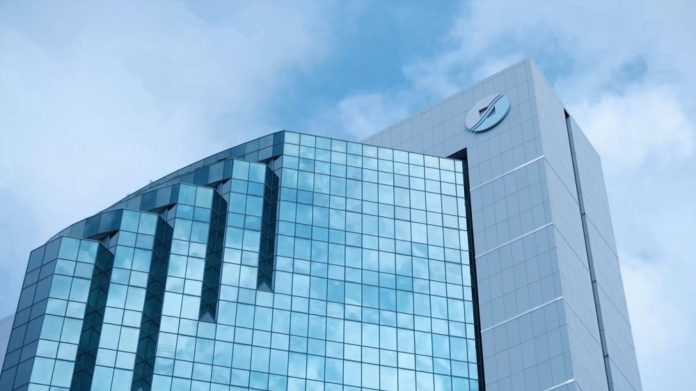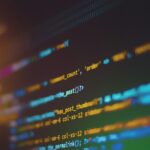Tax procedures and policies can often be difficult for the average small business to navigate. The Singapore government has deployed considerable personnel as well as technological resources to make the SME’s tax filing procedures less cumbersome over the years.
In this interview, we talk to Lim Siew Gim, Director of the Corporate Tax Division – Services Branch from the Inland Revenue Authority of Singapore (IRAS) to get her perspective on some of the best practices involved in tax compliance for SMEs and what the IRAS has done from a technology perspective to make the process easier.
What are some of the ways in which IRAS is looking to simplify the filing process using technology? How has technology transformed the taxation process over the past decade?
IRAS has been leveraging digital technologies while adopting an outside-in approach to design new digital solutions to simplify our tax filing processes.
The continuous enhancements for e-Filing of Corporate Income Tax Returns, such as the introduction of Form C-S and the new Form C-S (Lite), as well as the pre-filling of certain fields in the tax returns allow companies to save time and file their taxes easily.
Recently, together with ACRA, IRAS has also partnered accounting software providers to co-create a new digital solution that allows SMEs to automate the preparation and filing of Form C-S and Annual Return to IRAS and ACRA respectively via their accounting software. The digital solution leverages the Application Programming Interface (API) technology to simplify the tax filing process for companies and at the same time reduces their risk of making errors.
IRAS has come up with a digital solution to ease the filing process. Was this developed internally at IRAS? Could you talk a little about the development process involved?
The new digital solution is a collaboration between IRAS, ACRA and the accounting software providers. IRAS and ACRA developed the APIs that software providers can integrate into their software. Upon successful enhancement, the accounting software will have the capability to streamline the entire tax submission process. The preparation of tax computation will be automated using the accounting data that resides within the accounting software and the relevant tax data can be sent directly to IRAS upon confirmation by the end-users.
This automation alleviates the need for SMEs to possess or acquire in-depth tax knowledge and allows them to file their tax returns using a significantly shorter amount of time (a reduction from an estimated 9 hours to 30 minutes) and at a lower cost.
IRAS and ACRA piloted the solution with a group of 5 accounting software providers and we are in the process of scaling up to allow more software providers to consume our APIs. In doing so, we hope that more companies can enjoy the convenience of filing directly from their natural systems.
What are the top 3 things you would recommend SMEs do in order to get their tax process in order? What are some of the best practices you suggest?
SMEs should ensure that the following are done when preparing for their yearly tax filing:
- Keep proper records and accounts
Companies must maintain proper records and keep all their source documents (i.e. accounting records, bank statements and transaction records of the business) for at least five years, regardless of whether their past years’ tax assessments have been finalised.
- Claim tax deductions correctly
Companies should not claim non-deductible expenses in their tax returns. Examples of non-deductible expenses include private car (i.e. S-plated cars) expenses, private and domestic expenses (i.e. expenses not incurred for business purposes) and fines and penalties. For more information on the tax treatment for the various business expenses, companies can visit this link.
- e-File on-time to avoid late-filing penalties
Companies are reminded to e-File their Corporate Income Tax Returns by 15 Dec 2020 for the Year of Assessment (YA) 2020 to avoid incurring any penalties. We also encourage companies to e-File their returns early to avoid the last-minute rush.
Tax regulation can be complicated, and not an easy process for most SMEs to understand. What are the ways in which IRAS is working to simplify it, so that the process can be understood even by non-finance professionals?
The IRAS website is a great place for companies to look for relevant Corporate Tax information. It is regularly updated with the latest tax information.
IRAS has also created the New Company Start-Up Kit, which is an interactive guide that helps newly incorporated companies to better understand their first filing obligations. Companies that sign up for this kit will receive a tailored timeline for important filing due dates with IRAS and ACRA, email reminders on their tax filing due dates and useful tips on meeting their tax obligations.
Companies may also avail themselves to our e-learning videos that provide essential information on Corporate Tax, presented in an easy to understand manner.
In addition, companies may use the Basic Corporate Tax Calculator to guide them in the preparation of their tax computations before filing their Corporate Income Tax Returns.
If further assistance is required, companies can also access our virtual assistant ‘Ask Jamie’, or our Live Chat to get quick answers on Corporate Tax matters.
IRAS has contributed an article on the latest developments in Corporate Tax filing and some useful filing tips for companies. The article can be found here.














